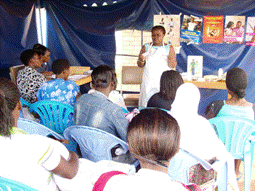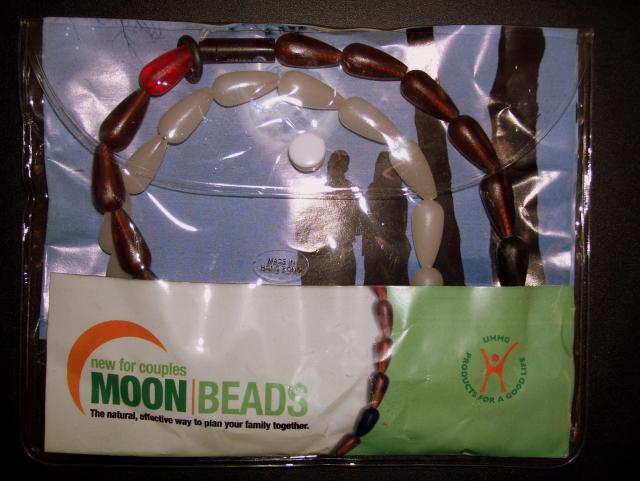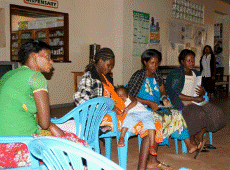Maternal health - a matter of planning and informed choices
The knowledge of family planning options theoretically available to women (or men) is apparently widespread - the challenge is the physical or financial access to the methods and consent for their use and correct use. The 2006 report by the demographic and household survey reported only 18% of women using a 'modern method'. The June 2011 UNFPA report on midwifery services cites that a third of women in their 20s had delivered a baby by the age of 18 and 35% of all women had what was described as an unmet need for family planning. The same report noted that Ugandan women have a statistic of over 6 births per woman in their lifetime. Choices become critical when MDG5 for Uganda reports 505 women die per 100,000 births and MDG4 reports 76 babies die before one year, per 1,000 births.
 |
 |
 |
|
We offer advice and many options
|
Traditional cycle method gets an update
|
Mothers at ANC learn about spacing
|
The wide availability of condoms in Uganda has placed huge pressure on the man's acceptance to use a condom and so availability of the condoms had to go with negotiating skills for the woman and significant social and cultural pressure to not use them. Another aspect has been religious interpretation that any planning is wrong and so Moon Beads help women count their days. But the reality of family planning, and the reproductive health of the mother and of her household and the other children, has revealed that women want access to pills or injectable contraceptives and are willing to consider implants and IUD providing multi-month or years' worth of spacing between babies. Through USAID and UNFPA supplies and information leaflets from UHMG, Hope Clinic offers all these choices.
Our midwives were interviewed by Christian Connections in International Health (CCIH) and their thoughts and that of the patients can be read at the CCIH site. Our Ante-Natal Care services are well attended and allow the mothers to be checked for their well-being including anaemia and their HIV status. We encourage men to attend with the mothers to be. Screening the women through ANC helps them to plan where they will deliver and the possible complications that could arise - the younger the women, her size, her health will all guide the midwives. We now use Maternal Health Passports which capture not only this pregnancy but the prior one, the family planning choices and the postpartum and neonatal care arising from the last delivery.